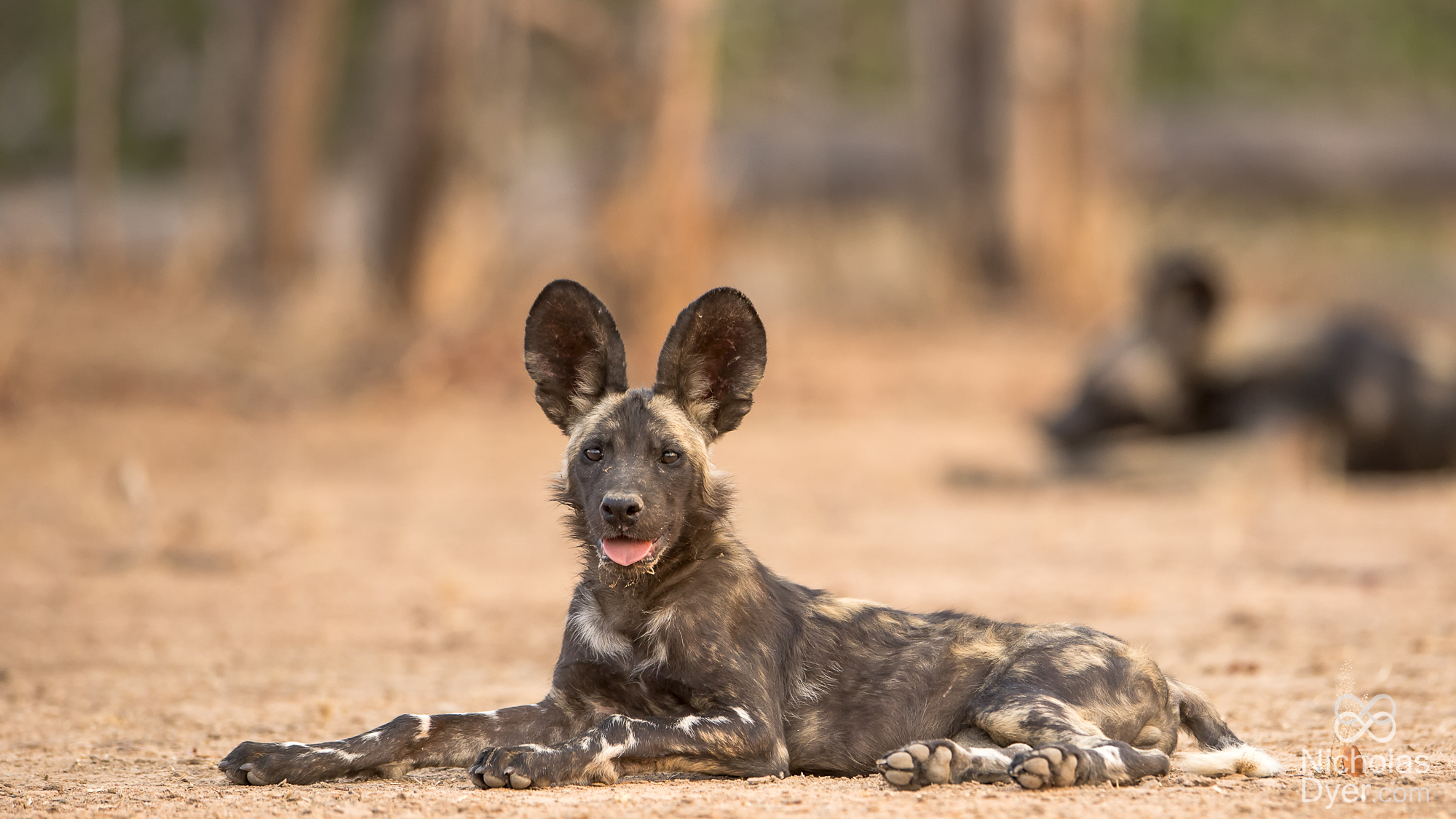
News Updates
PDC First Quarter Update 2023
We are excited to share with you the progress we made in the first quarter of this year. Thanks to your continued support, we were able to continue our vital work on the frontline of conservation, protecting the Mpindothela pack, educating kids and communities about the importance of conservation and sharing our knowledge and expertise with others, contributing to a wider conservation effort.
We are excited to share with you the progress we made in the first quarter of this year. Thanks to your continued support, we were able to continue our vital work on the frontline of conservation, protecting the Mpindothela pack, educating kids and communities about the importance of conservation and sharing our knowledge and expertise with others, contributing to a wider conservation effort.
Painted Dog Conservation 2022 Annual Report
We are glad to finally share our 2022 Annual Report with you. The year 2022 felt like a year where we could finally breathe easily again, the threat of COVID-19, for us at any rate, all but faded and we could really focus our full efforts on the life-saving work.
Wildlife Ranger Challenge and London Marathon
It was yet another time for the Wildlife Ranger Challenge (WRC). The WRC brings together more than 150 ranger teams, across 20 African countries to participate in a series of mental and physical challenges, culminating in the Wildlife Ranger Challenge 21km half marathon.
It was time for the third wildlife Ranger Challenge (WRC). The WRC brings together more than 150 ranger teams, across 20 African countries to participate in a series of mental and physical challenges, culminating in the Wildlife Ranger Challenge 21km half marathon.
We fielded two teams, one team of four rangers from our Anti-poaching Unit and another team of four rangers from the Mabale Community Anti-Poaching Unit. We also joined together with teams from ZimParks, Conservation Wildlife Fund and Forestry Commission and, made one big event for all the rangers protecting the beautiful wildlife in Hwange. Our local chief, Chief Nelukoba-Dingani took time to come and officially start the race after giving a warm speech appreciating wildlife rangers.
The London Marathon
Our Operations Manager, David Kuvawoga, took up a challenge to complete a full marathon and entered the TCS London Marathon. He did it for wildlife as he competed under team Tusk to fundraise for conservation.
And yes, he did complete it!
“It was epic, challenging but all worth it, Tusk has supported our work as PDC for over 25 years, especially the important anti-poaching work and it was a privilege to help them raise funds for this work to continue” David Kuvawoga.
Education – getting back to normal, saving painted dogs through education
Our Iganyana Children’s Bush Camp resumed its programs smoothly following the holidays and the relaxing of COVID-19 regulations. We had eight schools coming to the Bush Camp for the free-of-charge camps for the period of July-September making a total of 24 camps so far this year.
Our Iganyana Children’s Bush Camp resumed its programs smoothly following the holidays and the relaxing of COVID-19 regulations. We had eight schools coming to the Bush Camp for the free-of-charge camps in the period July-September, making a total of 24 camps so far this year.
The Ngamo kids were very excited, as they thought the camp had eluded them, as had happened for the 2020 kids, who missed their camp due to the pandemic.
The “Special Camp”, which brings the best-performing students from each school, back to the Bush Camp for the season finale, will be conducted again this year before schools close in December.
Complimentary to our education program is our university sponsorship program, which aims to create local role models for kids and communities, to look up to. The program funds deserving and/or underprivileged students who have attended our Children’s Bush Camp, to pursue their studies at the university level. We are looking at establishing a Scholarship Fund that you can contribute to and help sustain this critical intervention.
A case in point is Survivor, not only is he one of our anti-poaching unit scouts but he is also a graduate of our Children’s Bush Camp. He is studying Bachelor’s Degree in Film, Television and Media Studies at Lupane State University. He has committed to using his profession to profile conservation issues and create awareness of such. The objective on our end is that sponsored students take up key posts and leadership roles in wildlife conservation, prompting local people to appreciate wildlife and the environment more.
Student Profile
Name: Survivor Nyasulu
Current Occupation: Anti~Poaching Scout
Field of Study: Bachelor’s Degree in Film, Television and Media Studies
Length of Program: 4 years
Institution: Lupane State University
Future Prospects: Wildlife Documentaries, Photography and Podcasts
How do you see your study contributing to creating an environment where painted dogs can thrive?
Answer: “Firstly, media is a very powerful means of communication. We're living in an advanced world where the media controls everything. For instance, in the case of radio, Radio has the ability to reach remote areas. A good example, on the 4th of October 2022 l got a call from a listener in Solusi, after (they listened to) my radio show, they said they had sighted a PANGOLIN. I got in touch with ZIMPARKS who then headed there and recovered it.
Media is also equipping me with the necessary skills to tell stories through the lens, stories of the plight of painted dogs, that will be seen by many, and also help in engaging with many people in protecting the painted dogs, I am happy that I live with these animals and I can tell the stories”
Notes from the Field: The new pups of Mpindothela and the ‘no pups’ of Nyamepi
The long tale of the Mpindothela pack continues. This time it takes a good turn, successfully emerging out of the den with five well-nourished pups. This is the first litter of the troubled Mpindo pack survivors and Mathathela males who joined and formed the Mpindothela pack.
The long tale of the Mpindothela pack continues. This time it takes a good turn, successfully emerging out of the den with five well-nourished pups. This is the first litter of the troubled Mpindo pack survivors and Mathathela males who joined and formed the Mpindothela pack.
You will recall that the four surviving Mpindo females were released in August last year to join the four Mathathella males. We expected some coexistence issues but the response from the community was also as we hoped for and they tolerated the few instances of predation, actually blaming the livestock owners who suffered the predation for not looking after their livestock properly. As a unit, the communities rallied around and simply chased the dogs away rather than seek retribution. Today the pack have pups, illustrating the long-term behaviour change that we are seeking that will sustain the coexistence of wildlife and people.
In Hwange, poaching through wire snares remains one of the main threats to painted dogs. And through your help, we are meeting this head-on. The Mpindothela pack pups will be a great addition to the painted dog population of Hwange if they can make it through the next challenging months and reach adulthood. Our team is working hard to minimize any human-induced threats to the pack, which continues to occupy an area we know is a poaching hot zone.
Mana Pools, on the other hand, has a different set of problems for the endangered painted dogs, highlighted by the case of the Nyamepi pack this denning season.
The Nyamepi pack alpha female, called Whisky, gave birth to a litter of pups on September 16th or 17th. We saw her, heavily pregnant, on September 14th. We counted the days from when we had seen her mating on July 9th and knew the day was very close (painted dogs have a gestation period of 69/70 days).
On Monday 19th, Whisky spent the entire day and night away from the den with the rest of the pack. Boas, the alpha male, was hoo-calling a lot. This haunting call, a unique feature of the painted dogs, is a sign of a pack mate or mates missing. We were concerned because the alpha female spends almost all her time inside the den with her newborn pups at this stage. We wondered if lions had “raided” the den and chased Whisky away. If lions or something else comes to the mouth of the den she would be terrified, trapped inside. As soon as the coast is clear, she would flee to preserve her life above anything else.
Early on Tuesday 20th, the pack returned to the den. However, we could not locate them that evening.
By Wednesday 21st, we knew something terrible had happened to the pups because the entire pack again spent the day more than 2km from the den and never returned. It became apparent that the Nyamepi pack were already back into their nomadic ways. After intensive searching, we located the pack again on 4th October at Little Ingwe, which is about 10km from the original den site. The sighting confirmed once and for all that they were not denned and so the pups had perished, just a few days old.
The pups could have died of natural causes. It is very unusual for painted dogs to den so late in the year in Zimbabwe, however, there are enough recorded cases of such an unusual event happening. The usual denning season is June through to the end of August to early September. Or, had some disturbance caused Whisky to abandon her pups? On the latter, we continue to engage authorities to enforce the code of conduct agreed on in these areas regarding human behaviour around wildlife. We want people to see painted dogs, it serves them well in the long-term endeavour to protect the species, but if we smother them during the denning season in particular or disturb their hunts, we are not serving them well and the rate of recruitment will decline to pose a threat to the numbers. Every individual counts and we ought to protect each and every one of them together.




















